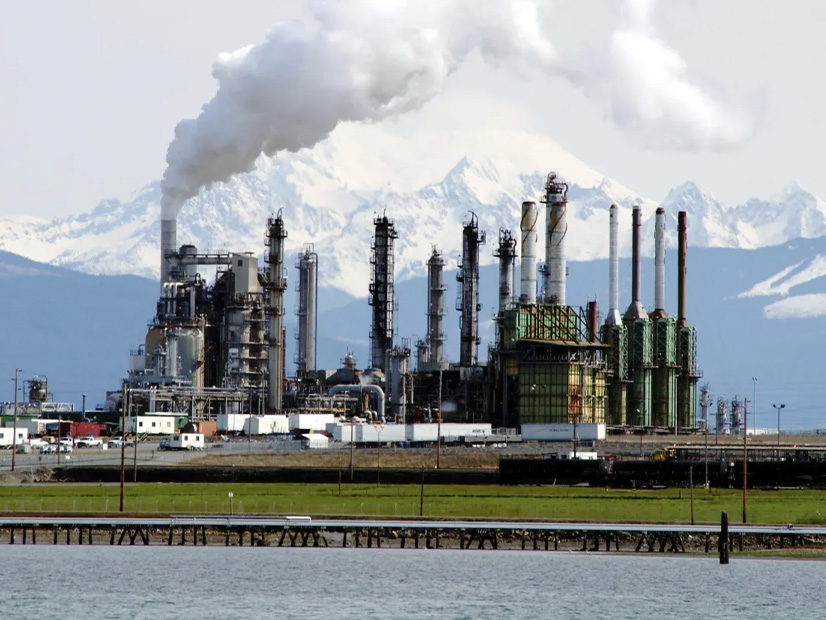
OLYMPIA, Wash. — A Washington bill that would have created a new agency to monitor the state’s oil industry has died in committee.
Senate Bill 6052 was stopped in the state Senate’s Ways and Means Committee on Feb. 5 because of the costs stemming from the cybersecurity need to protect the data to be collected from oil companies, the bill’s sponsor, Sen. Joe Nguyen (D), told NetZero Insider. The bill will be revived in the legislature’s 2025 session, he said. (See Wash. Bill Seeks Increased Monitoring of Petroleum Sector.)
Washington’s Legislature is in the middle of a short 60-day session that will mainly tweak the 2023-2025 biennial budget adopted last year.
In a recent hearing on the bill, oil industry representatives voiced concerns about the cybersecurity of several dozen different types of information the proposed Division of Petroleum Market Oversight would collect and analyze to make sure the industry is not engaging in price gouging. The cybersecurity measures bumped up the initial costs of establishing the agency to $30 million, which is not available in the budget the Legislature is working on, Nguyen said.
But the money should be available in the 2025 session, which will deal with the main biennial budget, Nguyen said.
Creation of the agency has been a major plank in Gov. Jay Inslee’s push to fight climate change. Inslee and Democratic leaders are concerned the oil industry has been unjustifiably raising gas prices due to the cap-and-invest program the state launched last year.
“We knew a proposal like this would be a heavy lift for a short session, especially with the expense of setting up new state infrastructure for this,” Inslee spokesperson Mike Faulk said in an email. “Even as gas prices in Washington have dropped to almost their lowest in two years, consumers will continue experiencing dramatic price swings. … As we make the transition to clean fuels, transparency into oil pricing will only become more important for protecting consumers.”
“Until the close of this session, no proposal is truly dead,” said Jessica Spiegel, senior director for the Northwest region at the Western States Petroleum Association. “However, there are legitimate concerns about the structure, scope and costs of the new state agency SB 6052 would have created. Once we move beyond this issue, the focus can be on the important work of reforming Washington’s cap-and-trade program.”
The WSPA represents four of Washington’s five oil refineries.
Modeled after a new California office, the proposed agency would collect a massive amount of financial and industrial data from various branches of the oil industry in Washington, including five refineries and a complex supply chain.
The agency would have subpoena power and would confidentially refer suspected legal violations to the Washington Attorney General’s office. It also would report its observations and conclusions to the governor’s office, other state agencies and the Legislature.
Inslee called for the bill following the political and economic fallout from the state’s introduction of a cap-and-invest program that went into effect in January 2023. Critics have blamed the program for a gas price increase of 21 to 50 cents per gallon, depending on how calculations are done.
Inslee has pointed to the fact that the oil industry reported $200 billion profits in 2022, sparking suspicions that it is price gouging behind closed doors. Meanwhile, a public referendum is headed to the November ballot to repeal the cap-and-invest program against the wishes of the Democratic-controlled Washington Legislature.
Washington’s gas prices have been among the highest in the nation since last summer, including spending a week as the highest. However, citing AAA figures, Nguyen said Washington’s gas prices have been among the five highest in the nation since the 1970s for economic and geographic reasons.


